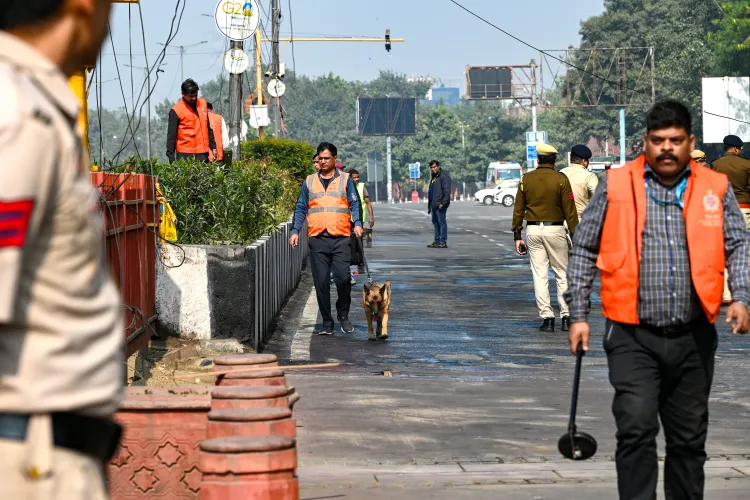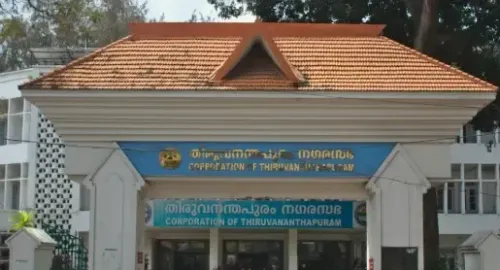Could the ISKP be Involved in the Delhi Blast Linked to the Faridabad Module?

Synopsis
Key Takeaways
- Investigators suspect ISKP involvement in the Delhi blast.
- Combination of TATP and ammonium nitrate is favored by the Islamic State.
- Faridabad module linked to an Afghan-based handler.
- Collaboration between ISKP and Pakistan poses new threats.
- Mixing TATP with ammonium nitrate enhances explosive lethality.
New Delhi, Nov 17 (NationPress) Investigators are considering the potential involvement of the Islamic State Khorasan Province (ISKP) in aiding the Faridabad module to carry out the Delhi Red Fort blasts. This suspicion arises from the use of explosives that are notably favored by the Islamic State, which has conducted attacks globally. Forensic analysts examining the incident discovered that Triacetone Triperoxide (TATP) was combined with Ammonium Nitrate.
This combination is a known preference for the Islamic State, having been utilized in attacks in Paris, Manchester, and Brussels.
Authorities have established that the Faridabad module, responsible for the Delhi blast, was managed by an individual based in Afghanistan.
Investigators are currently assessing whether this Afghan-based handler sought assistance from the ISKP in the creation of the explosives used by the Faridabad module.
An official remarked that this possibility remains open. Notably, this marks the first instance where an Indian or Pakistani module has employed this explosive mixture to execute a blast.
The Islamic State possesses the necessary expertise for producing such explosives. Moreover, it is believed that the ISKP may be inclined to assist due to its newly formed alliance with Pakistan.
Both the ISKP and Pakistan have decided to collaborate, sharing a common adversary in the Afghan Taliban.
Relations between Pakistan and the Taliban have reached a critical low, with both parties struggling to resolve ongoing disputes.
Pakistan accuses the Afghan Taliban of supporting the Tehreek-e-Taliban (TTP), which has been wreaking havoc on its military. The ISKP, which aims to overthrow the Taliban, has not been successful and has thus sought a truce with Pakistan.
The combination of TATP and ammonium nitrate has long been utilized by the Islamic State. The group, known for executing attacks via lone actors, began using this mix due to its relative ease of preparation.
This mixture tends to evade scrutiny compared to TNT, RDX, or PETN. Furthermore, it is easily transportable, often going unnoticed by security agencies.
Constructing conventional explosives demands significant expertise, with the individual needing extensive knowledge and training.
In contrast, the ammonium nitrate and TATP combination can be assembled by novices. Such crude IEDs can be created with online assistance, eliminating the necessity for terrorists to undergo full-scale training.
Additionally, these individuals are notably challenging to track, allowing them to operate under the radar.
While the assembly of this mixture requires minimal expertise, its impact can be devastating when deployed.
Ammonium nitrate is primarily used in agriculture as a high-nitrogen fertilizer, whereas TATP is an unstable and sensitive homemade explosive with no significant industrial or commercial applications due to its extreme volatility and sensitivity to heat, shock, and friction.
Combining TATP with ammonium nitrate enhances the explosive's lethality. The explosion at the Nowgam police station exemplifies the potential danger of unstable ammonium nitrate that was seized.
This seizure occurred following the dismantling of the Faridabad module, with the ammonium nitrate stored reaching a dangerously volatile state, leading to the explosion. Authorities stated that this incident was an accidental blast with no other angles investigated.









